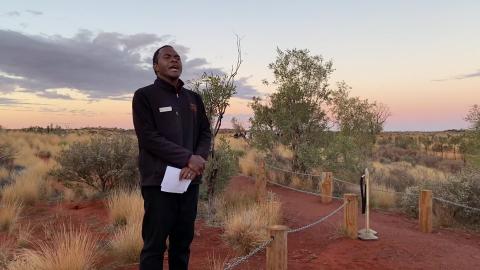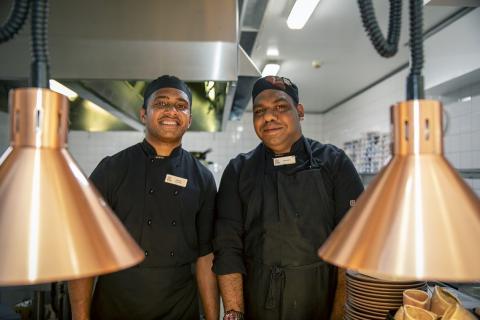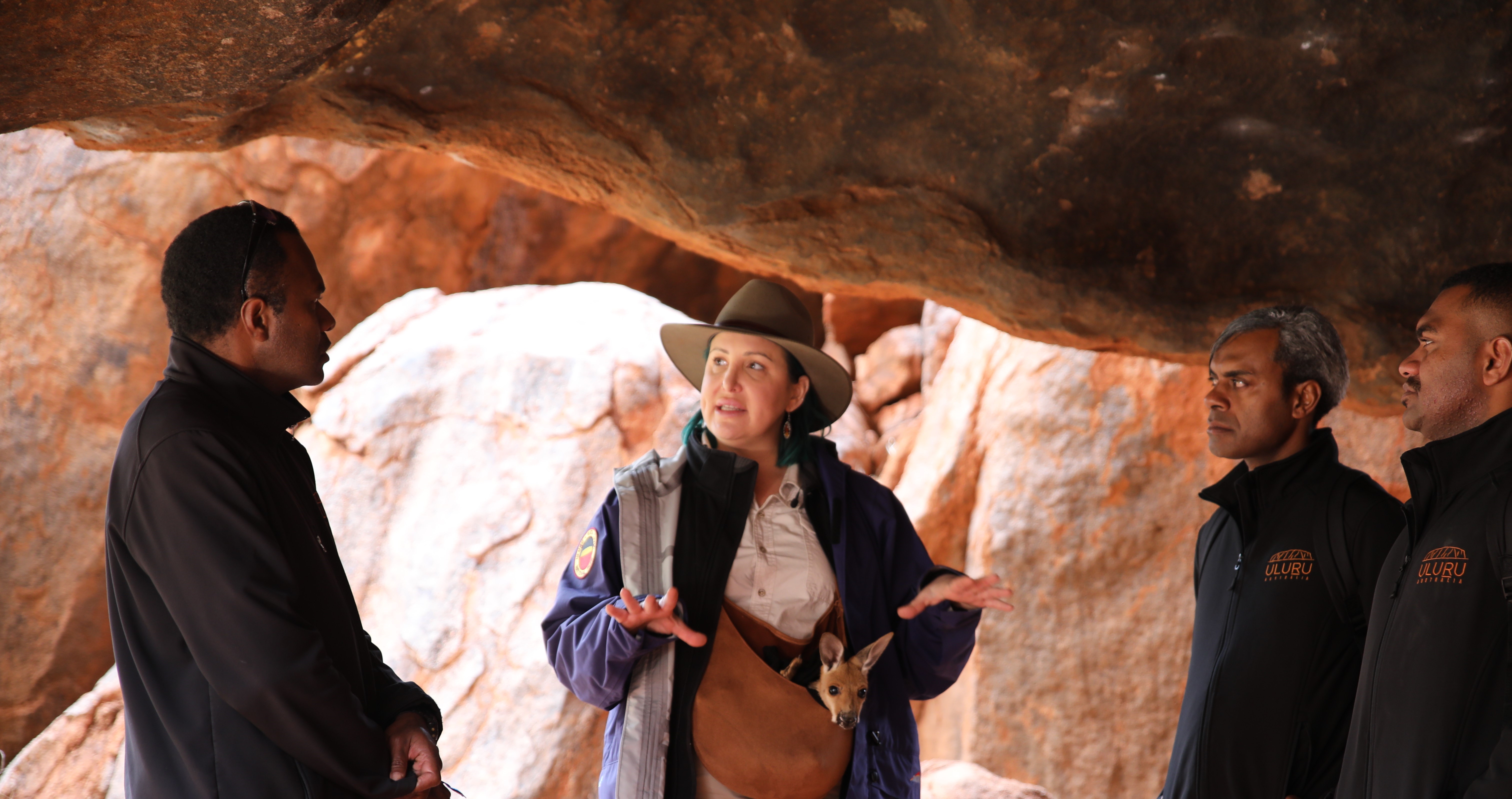A group of 163 Fijian hospitality workers are employed at Voyages Indigenous Tourism Australia’s Ayers Rock Resort in Yulara, Northern Territory, where they are learning about Australia’s First Nations cultures and making meaningful connections.

Among them is Bill, who works in the outdoor dining and beverage department and is a master of ceremonies for the resort’s famous Sounds of Silence dinner and Field of Light art installation.
Bill has been enjoying the opportunity to gain a new perspective on the industry and learn about the local Anangu people.
“First of all, we always acknowledge the traditional custodians of the land, which is one great thing I’ve learned - always consider and acknowledge the Indigenous people for allowing us to share their land for our work and holidays,” he said.
“It’s amazing how you get to know the history of Indigenous Australians and how long they've been here, travelling and thriving in the desert, how they teach their children to survive and to hunt and how they still respect their traditions and their cultures. How they still consider their elders, which is something we are missing in the world right now, even back at home,” he said.
Bill, who comes from Suva in Fiji, sees similarities between Australia’s First Nations cultures and his own Fijian traditions.
“There are similarities, especially with the community and how they work together, teaching their young ones to become adults, to hunt or to cook.
“It's a privilege and an honour to learn about other cultures and traditions,” he said.
Fellow Fijian Jowave has been experiencing this through food and cooking.
Jowave works as a commis chef and has been using local ingredients under the guidance of Voyages chef and friend Marcellus, an alumnus of its National Indigenous Training Academy (NITA) and winner of Northern Territory’s Hospitality Awards’ Apprentice of the Year in 2021.

“I’ve been learning a lot from Marcellus, especially because some things here are a bit different to Fiji.
“They use a lot of native stuff, so I’ve learnt more of that, like the bush tucker vegetables, and animals like emu, kangaroo, crocodile and wallaby,” said Jowave.
Marcellus said the experience has been positive for him too.
“Growing up, learning how to cook Indigenous foods, it’s very different to cooking it in a restaurant, sometimes marinated and cut up… whereas growing up we dealt with the whole animal. It’s one of those things where I never would have noticed how great it was to have that knowledge.
“Teaching people can help solidify that in your own mind. So, I was very happy to share that knowledge. I’m always happy to teach when someone is happy to listen and learn.
“The Fijians here have a very humble and appreciative attitude, and it’s great to get that sort of energy,” he said.
Jowave hopes to pass on this knowledge when he returns to Fiji.
“I hope to use this with my cooking back home in Fiji. Maybe bring some of the things I have learnt here back home – the seasonings, the way I cook… I can teach my colleagues,” he said.

